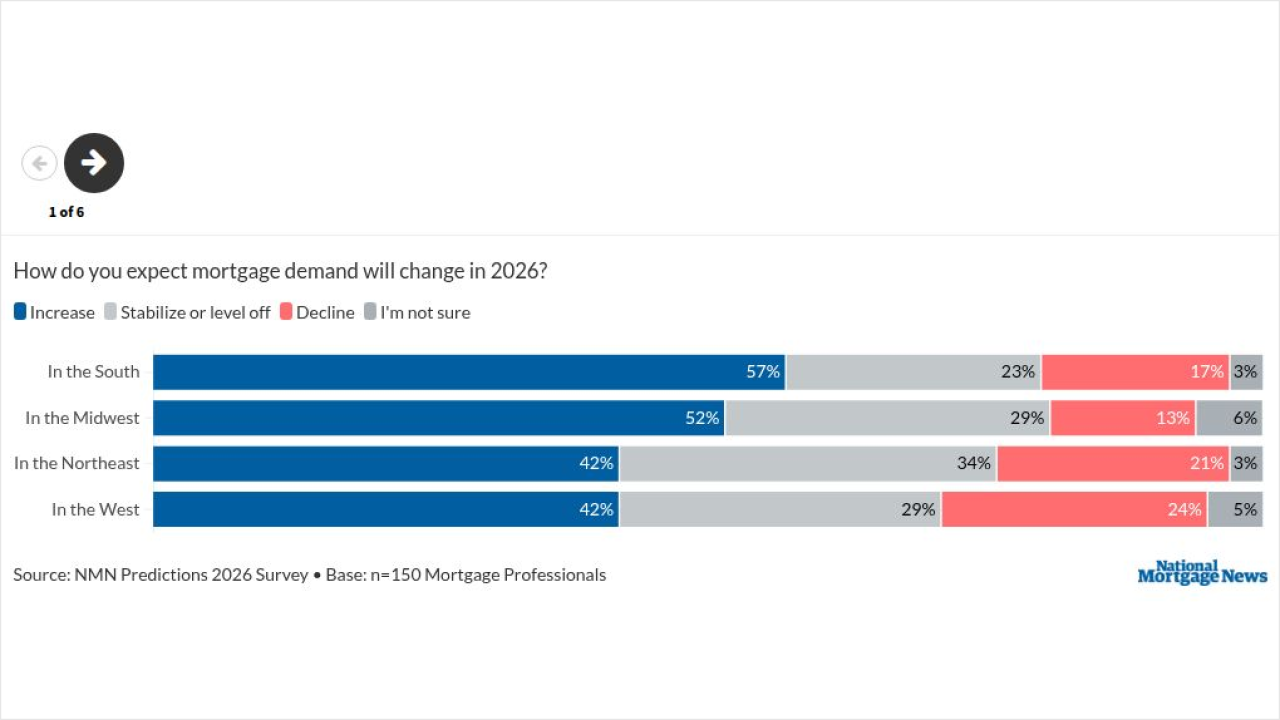Mortgage rates edged up higher over the past week, as inflation measures commingled with recession risk.
The 30-year fixed-rate mortgage averaged 5.54% for the weekly period ending July 21, according to Freddie Mac’s Primary Mortgage Market Survey, a 3-basis point increase from 5.51% seven days earlier. Last year, over the same period, the 30-year rate came in at 2.78%, which is almost half of its current mark.

The rate move was more muted compared to the
“In economic data released last week, both consumer and producer prices showed higher than anticipated increases. But investors continue to price in a potential recession in 2023, which may force the Federal Reserve to begin lowering the federal funds target sometime next year,” said Paul Thomas, vice president of capital markets at Zillow, in a research statement.
The result is an inverted yield curve, he said, where the 2-year Treasury rate trends higher than the 10-year, and is also a frequent predictor of a
After the heightened volatility of the past few weeks, with
“Investors believe the Fed will continue to raise rates in the short term but will have to begin easing once inflation slows and the economy likely slips into a recession,” Thomas said.
Mortgage-rate increases have already shown their effect on the
Several research groups have already noted
Similar to the 30-year mortgage, the 15-year fixed-rate average also came in higher, rising 8 basis points to 4.75% from 4.67% a week earlier. One year ago, the 15-year average stood at 2.12%.
And after two consecutive weeks of increases, the 5-year Treasury-indexed hybrid




